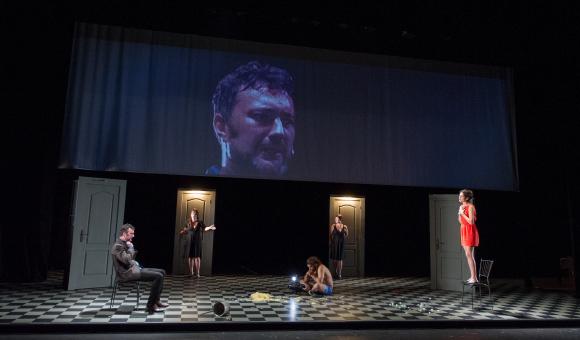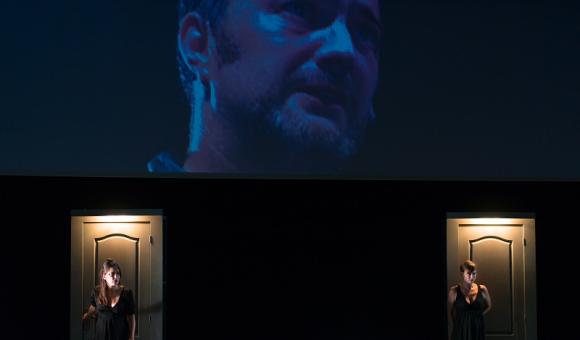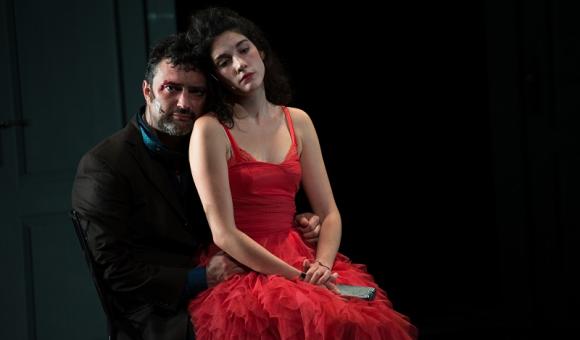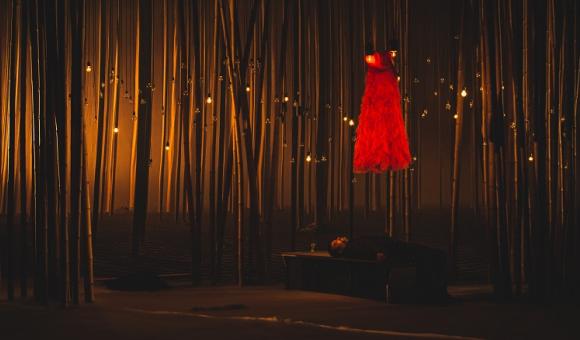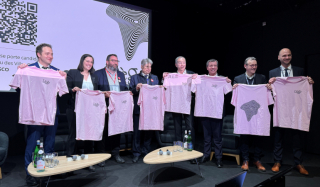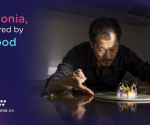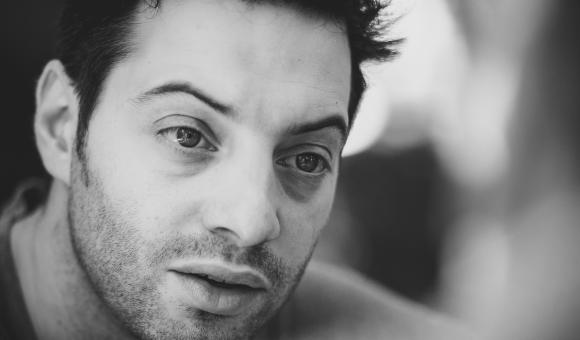
This 30-year-old writer and director from Liege created a buzz at the Avignon Festival in 2014 with Notre peur de n’être.
He seems to rise above the agitation of the festival. In the garden of the Manufacture, the young director arrives on time for our appointment. Maybe just a little tired, after all the last few days have been tough. The "In" festival in Avignon is not something that can be improvised. Up until the last minute, the set needs adjustment, the projections synchronised, the texts honed even, like a true professional. "I am hardworking", he admits with a smile, gently. "It is also a weakness because I can’t stop, and I should. The irony is that I talk about losing our relationship to time, and yet I myself am hidden away in my dark room, just like some of the characters that I create…"
The attitude contrasts with the message: Fabrice Murgia’s productions are driven by anger. He cries out against the loss of sensitivity, "in a world where people feel free, but where they are very lonely, because we are living in a culture that creates differences between individuals. It’s not even a poke at the liberal world. Rather an attempt to draw up an inventory of sensitivity."
Enlightened teachers
Murgia was inspired to take up acting, writing and the theatre by enlightened teachers. The idea of making it my profession came about at the Conservatoire in Liège. "You decide to become a director because you don’t feel at home as the narrator, as an actor. There is always a sense of frustration. At the end of the day, what I like doing is telling a story...”
By his own admission, the eldest Murgia - his brother David followed his example by going into acting – is a fully signed up member of the Liege school and acknowledges the influence of Professor Delcuvellerie: "There is a very strong sense of being part of the Groupov family, for example, even if our approaches to theatre are very different." There is nothing limiting about this relationship. "The whole point is for the different schools to feed off each other."
Fascinated by anthropology, the director explains his creations as "a desire to reflect the world, to make myself publicly useful." Political? "Theatre is by its very essence political, whatever you do..."
Keeper of memories
The work of Fabrice Murgia is also very much the story of a family, the story of immigration. An Italian father, a Spanish mother: Notre peur de n’être is dotted with the stories of his grandparents; they transmit a memory and a great deal of hope. The "ties of identity" at family level, but also at national level, feed his writing. "It is important to work worldwide from Brussels", he says. "Considering artists as ambassadors is important. In a democracy, there must be opposition. It’s essential. We ask questions that we put on the public stage. Going out into the world to seek questions and bringing them home means looking into our future."
This is very much the approach of the project Children of Nowhere (Ghost Road 2), under construction as part of Mons 2015. "The aim is to go to the Atacama Desert, in Chile, to question the destruction of the community. There is something very disturbing about human beings no longer recognising each other because they belong to different worlds..."
Anger is clearly not an emotion that is about to disappear from the creations of Fabrice Murgia. Although the director admits with an apparent calmness that he has softened somewhat: "The more my son grows, the more I want to finish on an optimistic note."
This article is taken from the W+B Revue n°125, to which you can subscribe for free.
